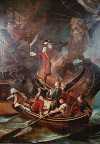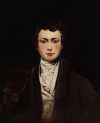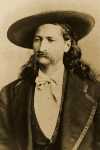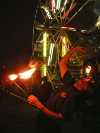 When news of the British Boston Port Act reached Chestertown, Maryland, a group of local residents boarded the brigantine Geddes and dumped the tea in the Chester River. Every year during the Chestertown Tea Party Festival, the rebellion is reenacted. The crowd winds its way down High Street to the river, where the “colonists” board a ship and throw its cargo of tea into the river. Other festival events include a colonial parade, exhibits and demonstrations of 18th-century American crafts, clog dancing, horse-and-carriage rides, and tall ship cruises. Discuss
When news of the British Boston Port Act reached Chestertown, Maryland, a group of local residents boarded the brigantine Geddes and dumped the tea in the Chester River. Every year during the Chestertown Tea Party Festival, the rebellion is reenacted. The crowd winds its way down High Street to the river, where the “colonists” board a ship and throw its cargo of tea into the river. Other festival events include a colonial parade, exhibits and demonstrations of 18th-century American crafts, clog dancing, horse-and-carriage rides, and tall ship cruises. Discuss
Source: The Free Dictionary
 Moore was an Irish poet who achieved prominence in his day not only for his poetry but also for his love of Ireland and personal charm. He is remembered today for Irish Melodies, a group of lyrics published between 1808 and 1834 and set to music by Sir John Stevenson and others. Moore was friends with Percy Bysshe Shelley and Lord Byron, and his biography of Byron is among his best prose works. Byron left Moore his memoirs, but Moore later destroyed them. Who persuaded him to do it?
Moore was an Irish poet who achieved prominence in his day not only for his poetry but also for his love of Ireland and personal charm. He is remembered today for Irish Melodies, a group of lyrics published between 1808 and 1834 and set to music by Sir John Stevenson and others. Moore was friends with Percy Bysshe Shelley and Lord Byron, and his biography of Byron is among his best prose works. Byron left Moore his memoirs, but Moore later destroyed them. Who persuaded him to do it?  Music existed long before human cultures were literate or had developed a written system of record-keeping, perhaps originating as an attempt to echo the sounds and rhythms of nature. These sounds may have been used to lure prey while hunting or in recreational or shamanistic rituals. The oldest known bone flute is about 50,000 years old, but experts believe that humans may have used what to create a form of music that predates such instruments?
Music existed long before human cultures were literate or had developed a written system of record-keeping, perhaps originating as an attempt to echo the sounds and rhythms of nature. These sounds may have been used to lure prey while hunting or in recreational or shamanistic rituals. The oldest known bone flute is about 50,000 years old, but experts believe that humans may have used what to create a form of music that predates such instruments?  The Le Paradis massacre was a WWII war crime committed by German soldiers under the command of officer Fritz Knöchlein. After becoming isolated from their regiment and running out of ammunition during the Battle of France, a group of British soldiers surrendered to German troops. They were then led across the road, lined up against a wall, and shot. Ninety-seven British troops died. Two survived and hid, but they were captured several days later. What happened to Knöchlein after the war?
The Le Paradis massacre was a WWII war crime committed by German soldiers under the command of officer Fritz Knöchlein. After becoming isolated from their regiment and running out of ammunition during the Battle of France, a group of British soldiers surrendered to German troops. They were then led across the road, lined up against a wall, and shot. Ninety-seven British troops died. Two survived and hid, but they were captured several days later. What happened to Knöchlein after the war?  Hickok was an American frontier marshal, legendary marksman, and gambler. In 1861, while working as a stagecoach driver, he shot and killed outlaw Dave McCanles, earning a reputation as a gunfighter. After serving as a Union spy during the Civil War, he was appointed a US marshal and tamed two Kansas towns. He was shot dead by a drunken stranger while playing poker at a saloon in the town of Deadwood. At the time, he was holding what combination of cards, now known as “dead man’s hand”?
Hickok was an American frontier marshal, legendary marksman, and gambler. In 1861, while working as a stagecoach driver, he shot and killed outlaw Dave McCanles, earning a reputation as a gunfighter. After serving as a Union spy during the Civil War, he was appointed a US marshal and tamed two Kansas towns. He was shot dead by a drunken stranger while playing poker at a saloon in the town of Deadwood. At the time, he was holding what combination of cards, now known as “dead man’s hand”?  Fire-eaters are entertainers who extinguish flaming objects and transfer flames using their mouths and other body parts. The tradition of fire-eating was embedded in the spiritual performances of Hindu ascetics, and by the late 1880s, these daring acts had become a standard element in sideshow productions. Extinguishing tricks are the traditional hallmark of fire-eating, and performers often use their mouths to snuff out 1, 2, or even 3 flaming torches. What is the “secret” to fire-eating?
Fire-eaters are entertainers who extinguish flaming objects and transfer flames using their mouths and other body parts. The tradition of fire-eating was embedded in the spiritual performances of Hindu ascetics, and by the late 1880s, these daring acts had become a standard element in sideshow productions. Extinguishing tricks are the traditional hallmark of fire-eating, and performers often use their mouths to snuff out 1, 2, or even 3 flaming torches. What is the “secret” to fire-eating?